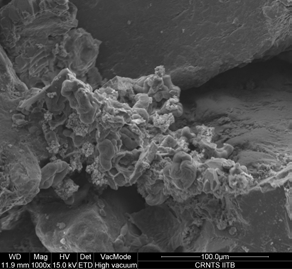
Alkalophile microbes are known to consume urea and form calcium carbonate. Only recently this ‘natural cement’ has been used to bond loose granular soil particles to improve their strength and solve other geotechnical issues such as increase liquefaction and earthquake resistance, reduce soil erosion and restore brown field sites. The success of this method depends upon the precise environment conditions for the organisms to secrete one or more of their metabolic products. The temperature and pH must be ‘just right’. The objective of the study is to help generate the perfect environmental conditions which can ensure that the biological activities rise and supersaturated conditions are recreated to the soil’s advantage.
The results of microbial induced calcite precipitation (MICP) method are compared to the enzyme induced calcite precipitation (EICP) method. MICP is cost-effective and eco-friendly but suffers from several problems such as bio-plugging and the need of continuous running and management of bioreactor. EICP appears to overcome these disadvantages wherein plant derived urease enzyme is directly employed for the ureolysis, thus eliminating the tedious process of cultivating and fixing the bacteria. It can easily seep through most sands and can sustain harsh environment.
Prof. A Juneja
